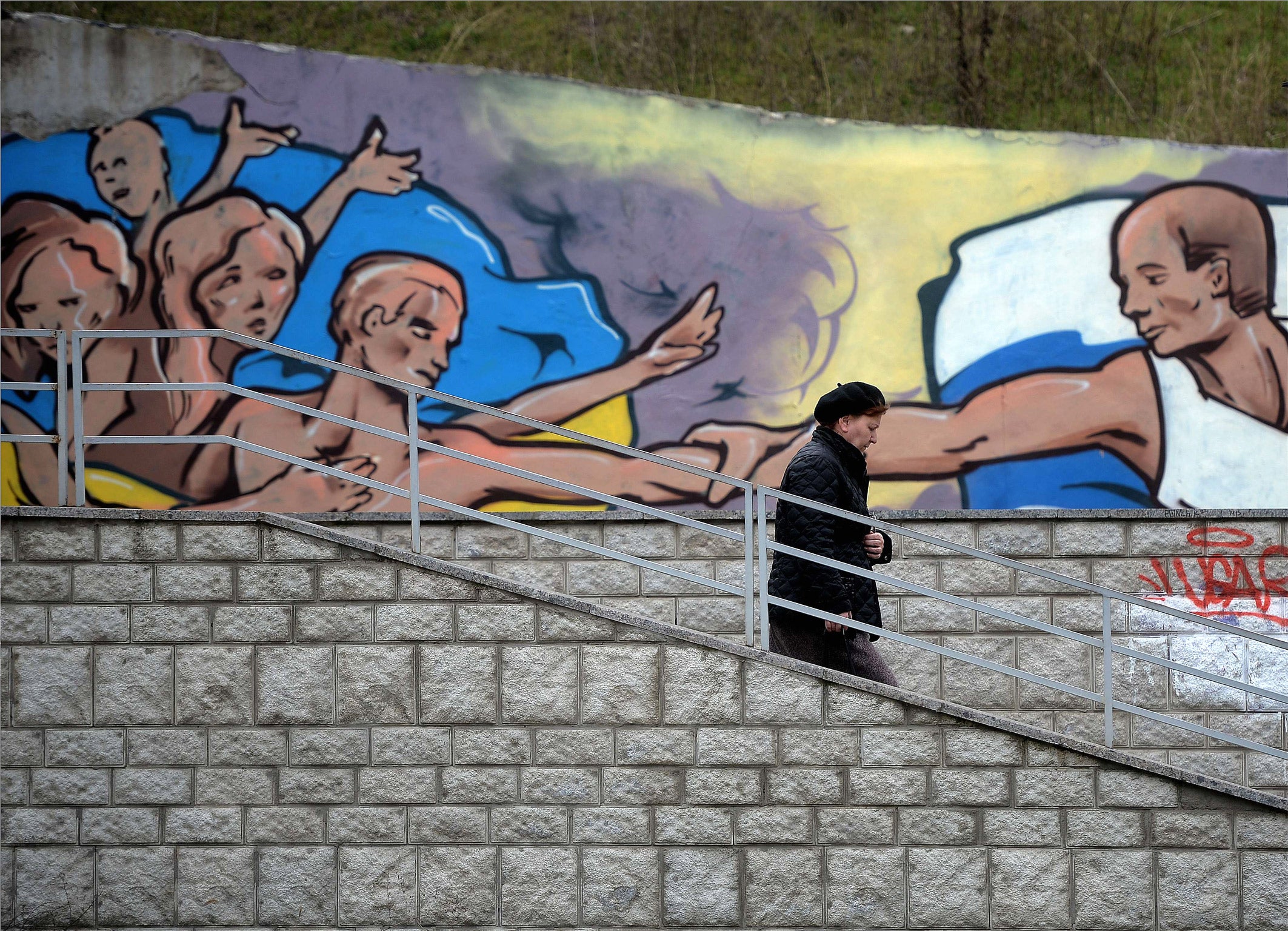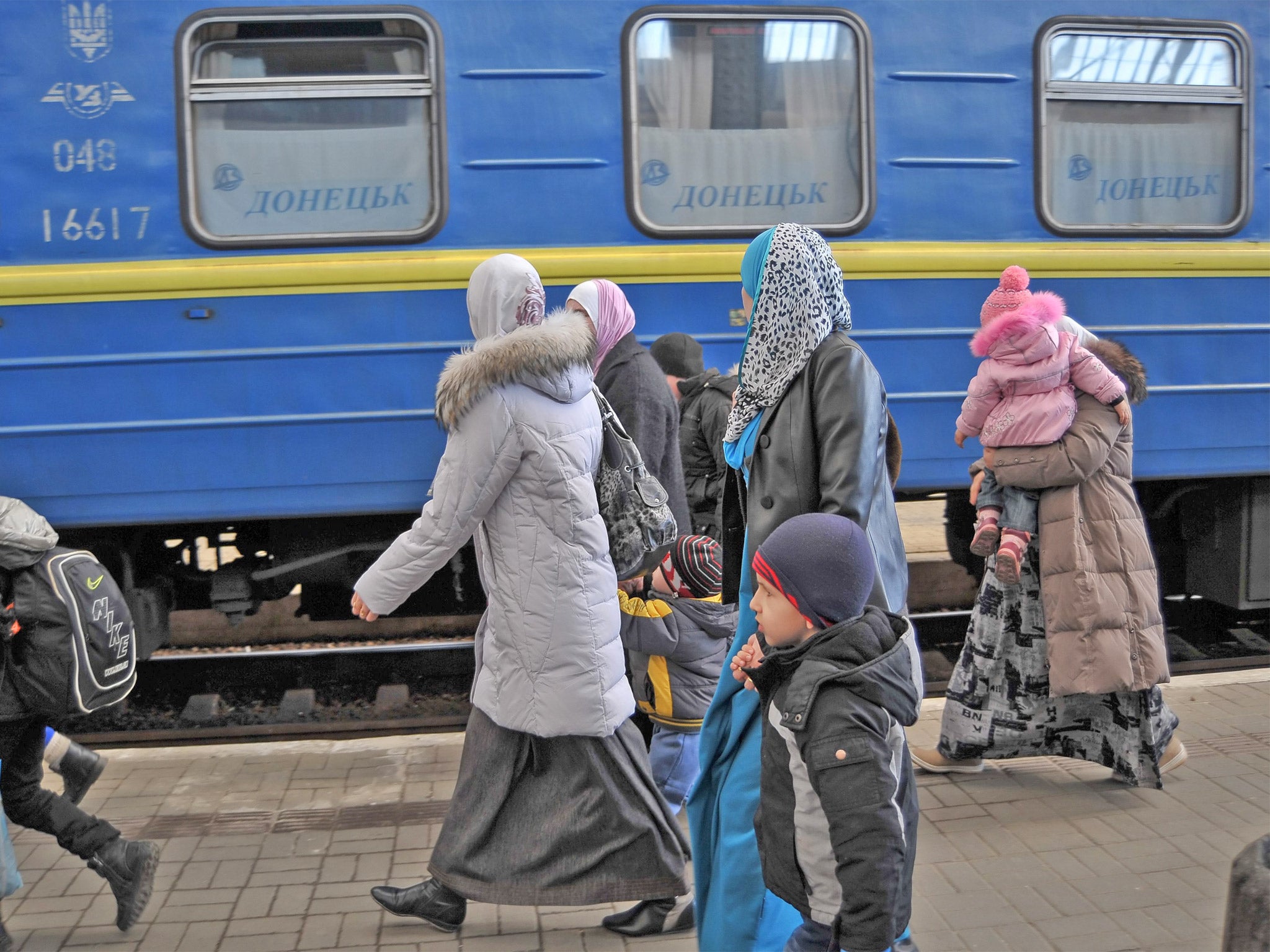Ukraine crisis: Tatars of Crimea fear a knock on the door and a return to the bad old days of the Stalin era
Under the Soviet leader, thousands were forcibly deported. Could it happen again?

The sight of the scowling men carrying baseball bats, working their way through the streets with a list of names, and her door being among those with the shape of a cross scratched into it, proved too much for Ava Mamertova. She collapsed; one of many in the Tatar community haunted by fear that the worst of times was about to revisit them with terrible consequences.
As soon as the separatists in Crimea had used the turmoil in Ukraine to embark on their plan to invite rule by Moscow, the role of the Tatars would play has been under immense scrutiny; deported en-masse from here by Stalin at the end of the Second World War, they remain virulently against secession and moves to re-join Russia.
It was clashes between Tatars and Russians at a demonstration in the state capital, Simferpol, on 26 February which set the scene for annexation. The parliamentary buildings were taken over that night by gunmen declaring “we are Russia” and the arrival of Kremlin's forces on streets followed a day later.
After that the Tatars kept a low profile. Hundreds of them, mostly women and children, have left for other parts of Ukraine and beyond. Their governing council, the Mejlis, has stressed the need for calmness while, at the same time, calling on the community to boycott the referendum on the status of the region, scheduled for Sunday.
Mrs Mamertova, 43, from the town of Bakhchisarai, has been diagnosed with heart problems since her collapse. The marking of her door was a grim reminder of what preceded the exiling of her parents 70 years ago. In other parts of the state, strutting members of Russian nationalist vigilantes have intimidated Tartars.
But, at the same time, the governments of Russia and breakaway Crimea are making what appears to be a concerted effort to win the community over.
The national leader of the Tatars, Mustafa Dzhemilev, was today in Moscow where it was expected that he would hold talks with Vladimir Putin. The new Crimean prime minister, Sergei Aksyonov, who came to power through a putsch and is viewed with deep suspicion by the Tatars, has offered the Mejlis a number of ministries, supposedly strengthened laws to protect minorities and grants for cultural projects, and the renaming of Simferopol airport after a Tatar hero.
The Crimean government initiative has left the Mejlis, so far, unmoved. The council's head, Refat Chubarov, reiterating at a meeting that voting would legitimise an “illegal” referendum. In Moscow, Mr Dzhemilev claimed that his first demand to Mr Putin would be to pull back troops. “That is the main condition, after that we can talk about everything. We believe that the referendum is illegitimate because it is being organized by a separatist structure, but I am open to discussing anything. We are a small nation, we are not going to fight Russia one-on-one.”
A few Tatars are, however, are questioning the community elders. At a recent protest rally against secession, Adem Ibrahimov, a 46 year old engineer, wondered whether “a different approach should be taken. We had not been involved in demonstrations because the Mejlis told us not to, this is the first time you see Tatars out with Ukrainians and Russians for more than two weeks and even then there are only small numbers of us.”

“All these people here want to stay with Ukraine; so I wonder we should be voting. I know there will be fraud but if the media show how many people have turned up, it will help prove that fraud has taken place.” His friend Rustum added: “Maybe we should talk to Aksyonov. We don't have to like him, but we can start putting forward demands for our people. We should demand that international observers, not just Russian ones, should be present for the referendum.”
The Crimean information minister, Dmitriy Polonsky, insisted to The Independent “that more people would vote than one thinks. We... think at least 80 per cent will vote. I don't know how many international observers can come, it's not my department, but I don't see why they should not be here.”
Earlier this week, Mrs Mamertova's home was visited by another set of men with lists. “They said they were officials and they had come to talk about the referendum, they were saying why it was a good thing and we should all take part,” she recalled.
“They were not threatening; they did not tell us that we must vote. My husband told them we did not plan to take part. But I don't know what's going to happen; we have thought about leaving Crimea, but we are not going to.
“I was born in Uzbekistan, where my family were sent from here. We have been back 24 years; we have built this house, we have built up a business growing flowers. Our Russian neighbours are good, their men go out on night patrol with our men to make sure this area is safe. But we also remember being told that these crosses began to appear before everyone was taken away those years ago. So, yes, we are very worried.”
Join our commenting forum
Join thought-provoking conversations, follow other Independent readers and see their replies
Comments